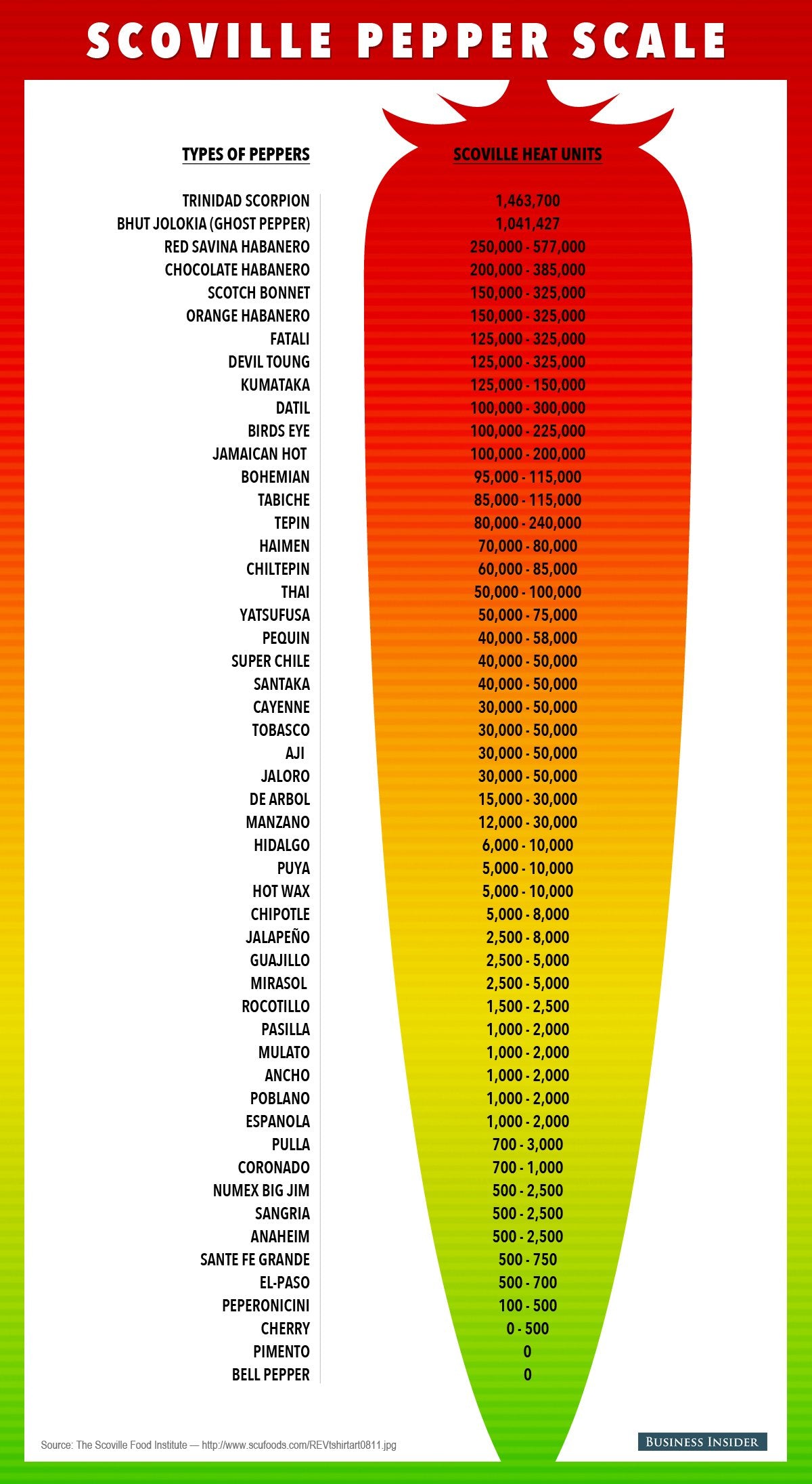Your Cart is Empty
$8 Flat Rate Shipping On All 1 Time U.S. Orders.
$8 Flat Rate Shipping On All 1 Time U.S. Orders.
$8 Flat Rate Shipping On All 1 Time U.S. Orders.
Add description, images, menus and links to your mega menu
A column with no settings can be used as a spacer
Link to your collections, sales and even external links
Add up to five columns
Add description, images, menus and links to your mega menu
A column with no settings can be used as a spacer
Link to your collections, sales and even external links
Add up to five columns
Add description, images, menus and links to your mega menu
A column with no settings can be used as a spacer
Link to your collections, sales and even external links
Add up to five columns
Add description, images, menus and links to your mega menu
A column with no settings can be used as a spacer
Link to your collections, sales and even external links
Add up to five columns
3 min read
A lot of hot sauces claim to be "the hottest", and there is always a lot of publicity about the next "hottest pepper in the world". But what does that mean from a practical perspective? How hot is a sauce when it says that it's hot, or when it has a certain type of pepper?
"Hot" Is Subjective
What's hot to you, may only be mild to me. That's because I literally work with hot sauce, and bombard my palate on a daily basis with some of the most intense sauces being produced. I remember cooking a pot of chili for my parents years ago, and I added only three or four dashes of Tabasco to the pot. That's a lot less that I would typically add for just my serving, but for my parents, who live in rural farm country (read bland meat and potatoes cuisine), this was uncomfortably spicy. So a dish that was extremely mild to me, was "hot" to them.
"Heat Levels" Are More Scientific
So, apart from personal opinion, how can you really gauge the heat of a particular sauce or pepper? Well, the hot sauce/culinary industry uses the Scoville Scale as a basis of measurement. Essentially, this scale measures how much sugar water it takes to dilute a sample of a pepper's capsaicin until a panel of tasters can't taste the heat any longer. Okay, so it's not completely objective, but that's why there's typically a range for each pepper.
So How Do We Use Scovilles?
A Scoville rating will give you a good idea of how safe (or daring) you are with a pepper or hot sauce. To give you an idea, the typical jalapeño will range from 2,500 to 8,000 Scoville, whereas the Trinidad Scorpion can weigh in at a whopping 1,463,700 Scovilles. Yeah, you read that right. Nearly 1.5 million Scoville Units. So if you think jalapeno is hot, then you probably shouldn't go much over 10,000 SU to be comfortable.
Some Considerations
We feature a number of Habanero hot sauces that range from Hot to Medium, not extremely hot, even though Habanero can range from 250,000 to 577,000 Scoville Units. Why is this? Well, it largely dependent on a hot sauce's recipe. A sauce may feature a number of ingredients before the pepper, including fruit, tomato, and/or water or vinegar, effectively diluting the heat of the pepper. So while it has what can be a very hot pepper variety, the recipe, and even place of origin of the pepper, will impact how hot it really is.
Beware of Extracts
Seriously, look at the label and see if a sauce uses extracts. Many sauces will not only include a pepper high in Scoville Units to begin with, but then they add pepper extracts, which are concentrated pepper essence or capsaicin. In some cases, it's safest, and more realistic, to think of these sauces as an ingredient and not a sauce. One or two drops can pack incredible amounts of heat. You'll find some of these under our Extremely Hot section of the site. Many of these sauces can easily broach the 1,000,000-plus Scoville range, and just one drop can pack a lot of pain (and post-heat euphoria). These can be a lot of fun to experiment with, but be careful!

Comments will be approved before showing up.

3 min read
The reality is that not everyone likes hot sauces or even has the guts to try. Even though you have told them countless times how it can dramatically change the taste of a food for the better. Here’s a few things you can do to convince your family or friends to become a hot sauce lover in a span of a few weeks or months.

3 min read